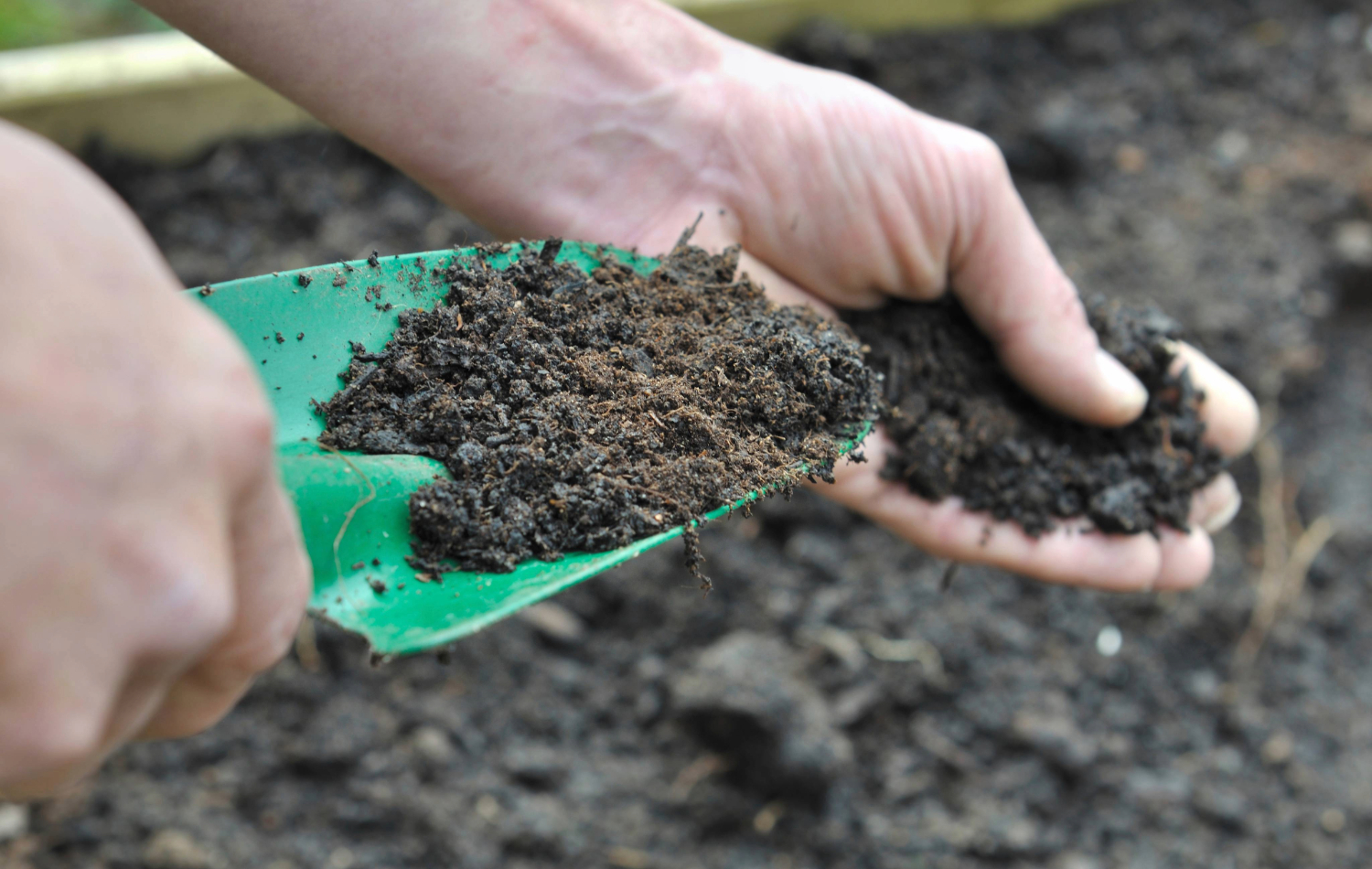Composting

Compost is organic material that can be added to soil to help plants grow. Food scraps and yard waste currently make up 20 to 30 percent of what we throw away and should be composted instead. Making compost keeps these materials out of landfills, where they take up space and release methane, a potent greenhouse gas.
Composting requires three basic ingredients:
- Browns - This includes materials such as dead leaves, branches, and twigs.
- Greens - This includes materials such as grass clippings, vegetable waste, fruit scraps and coffee
- Water - Having the right amount of water, greens and browns is important for compost
For a more efficient compost pile, have an equal amount of browns and greens. You should also alternate layers of organic materials of different-sized particles. The brown materials provide carbon for your compost, the green materials provide nitrogen, and the water provides moisture to help break down the organic matter. Decomposition will happen any way you do it, but these steps will speed up the process and result in higher quality compost.

How to Compost
- Select a dry, shady spot near a water source for your compost pile or bin.
- Add brown and green materials as they are collected, making sure larger pieces are chopped or shredded.
- Moisten dry materials as they are
- Once your compost pile is established, mix grass clippings and green waste into the pile and bury fruit and vegetable waste under 10 inches of compost material.
- Optional: Cover top of compost with a tarp to keep it When the material at the bottom is dark and rich in color, your compost is ready to use. This usually takes anywhere between two months to two years.
- Here is the fun part: Spread the mature compost on your lawn, flower or vegetable beds and watch the plants grow!
Benefits of Composting
- Enriches soil, helping retain moisture and suppress plant diseases and pests.
- Reduces the need for chemical
- Encourages the production of beneficial bacteria and fungi that break down organic matter to create humus, a rich nutrient-filled material.
- Reduces methane emissions from landfills and lowers your carbon footprint.
Download the Composting 101 Manual
Download the Composting for Beginners Sheet